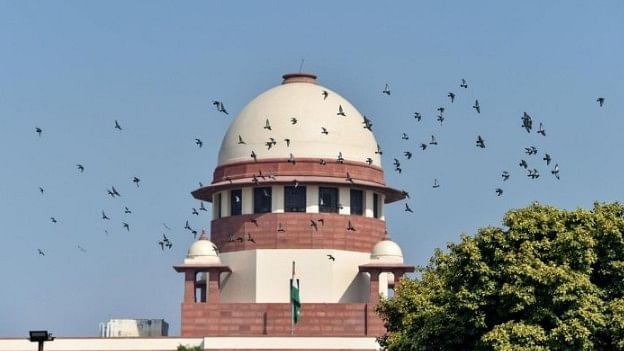
Supreme Court
New Delhi: Excessive bail is no bail, the Supreme Court said on Thursday, while allowing a plea by a man to use sureties given in one case in all other cases faced by him.
"Sureties are essential to ensure the presence of the accused, released on bail. At the same time, where the court is faced with the situation where the accused enlarged on bail is unable to find sureties, as ordered, in multiple cases, there is also a need to balance the requirement of furnishing the sureties with his or her fundamental rights under Article 21 of the Constitution," a bench of Justices B R Gavai and K V Vishwanathan said.
The court allowed a writ petition filed by Girish Gandhi who faced several cases in multiple states of Haryana, Uttar Pradesh, Rajasthan and Kerala with regard to cheating and other offences. He said the sureties already furnished by him in two cases should be allowed to be used in all the other 11 cases.
He also said though, he has been granted the bail, he was still in custody due to failure to furnish sureties.
After hearing the parties including the states which opposed his plea, the bench said, "From time immemorial, the principle has been that the excessive bail is no bail. To grant bail and thereafter to impose excessive and onerous conditions, is to take away with the left hand, what is given with the right."
In such cases, a solution has to be found strictly within the framework of the law, the bench said.
The judgment, authored by Justice Viswanathan, said, whether it is to get individuals, to stand as a guarantor for a loan transaction or as a surety in a criminal proceeding, the choice for a person is very limited.
"It will very often be a close relative or a longtime friend. In a criminal proceeding, the circle may get even more narrowed as the normal tendency is to not disclose about the said criminal proceeding to relatives and friends, to protect one’s reputation. These are hard realities of life in our country and as a court of law we cannot shut our eyes to them," the bench said.
The court allowed the petitioner's plea, saying this direction will meet the ends of justice and will be proportionate and reasonable.
"This would protect the person’s fundamental right under Article 21 and at the same time guarantee the presence," the bench added.
